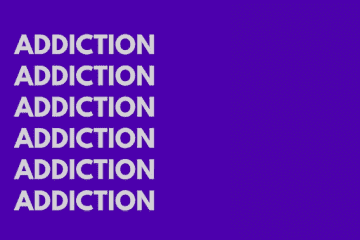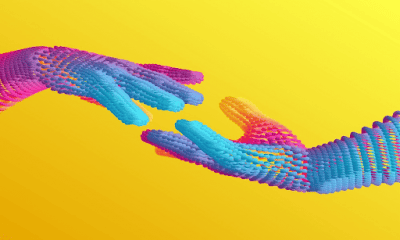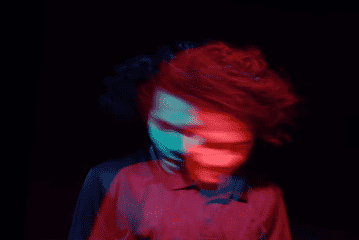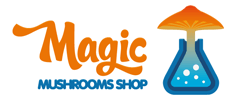Psychedelics & Addiction
Posted under: Latest News, News and Science

Psychedelic substances seem to be radically evolving the therapeutic approach towards addiction and even altering our basic understanding of addiction. We start to see that addiction isn’t a choice and it isn’t the problem ─ it is an attempt to treat the problem. Research and anecdotal evidence is indicating that psychedelics can shed light and offer healing when it comes to addiction.
.
What Do We Mean When We Speak About Addiction
.
.
.
At a neurological level, addiction stems from a dysfunction in the reward, motivation and memory system in the brain, which leads to craving a substance or behaviour compulsively, despite the detrimental physical or emotional impact it has. We get hooked on the ‘high’ that we physically and psychologically receive from engaging with this substance or habit.
.
⅓ people in the world have an addiction (though probably more depending on one’s definition of addiction). Addictions can take the form of substance abuse ─ alcohol, opioids, nicotine or caffeine ─ or behaviours and habits such as gambling, sex, work or social media. Addiction has neurological, biological, environmental and cultural factors; in essence, it seems to be about filling our internal holes with external things.
.
Historically we have not understood addiction well at all, and we have been even worse at treating it. For example, the widespread ‘War on Drugs’ where substances were made illegal or banned, just further enforces secrecy and shame and perpetuates the relapse and remission cycle. In order to properly understand addiction it is essential that we begin to realize that it doesn’t matter so much what you’re addicted to, but rather what the substance does for you.
.
“Our birthright as human beings is to be happy, and the addict just wants to be a human being.” ─ Dr. Gabor Maté
..
Contemporary Theories about Addiction
.

..
While physiological dependency does occur when we have a recurring addiction, modern approaches to addiction therapy are also interested in the reasons behind the addiction. Some proposed theories for this include:
..
Trauma ─ when we experience a traumatic event it can cause us to sever or dissociate or disconnect from ourselves. A leading voice on this perspective is Dr. Gabor Maté, who has written and spoken extensively on trauma as the root of most (if not all) addiction in our society.
..
Isolation ─ an often-cited study from the 1970s led by Bruce K. Alexander showed that rats living in a social environment were significantly less likely to self-medicate with morphine compared to those living in isolation. This research began to shift the narrative for how we look at addiction, and in the decades since there is a developing understanding that it starts from a place of disconnect and is not only a chemical imbalance or dependency on substances.
..
Hopelessness, Helplessness & Dread ─ the world is a chaotic place, and collectively we are becoming more overwhelmed with the enormity of the global issues we face, from climate change and recession to overpopulation and war. These feelings of existential hopelessness can cause our mental health to plummet; from here we attempt to exert some level of control over what is essentially a meaningless existence, by reaching for substances that (temporarily) soothe or distract us from the pain.
.
How Can Psychedelics Treat Addiction
.

.
Research is offering strong evidence that psychedelic substances can be incredibly useful when it comes to treating addiction. Disrupting the cycle, curbing cravings and renewing people’s outlook on their life, for some, a trip has been compared to years' worth of therapy. Now, let's dive into the scientific realm and explore the mechanisms through which psychedelics work their wonders.
.
One remarkable aspect is how psychedelics interact with the brain's serotonin receptors. Serotonin plays a crucial role in regulating mood, emotions, and addictive behaviours. Psychedelics like psilocybin and LSD bind to these receptors, leading to altered states of consciousness and profound introspection.
.
In addition, research suggests that psychedelics promote neuroplasticity—the brain's ability to reorganize and form new neural connections. This rewiring effect can help break the patterns of addiction and pave the way for new, healthier behaviours. Psychedelics also (temporarily) suppress the default mode network ─ an area involved in self-reflection and rumination which is often overly rigid or unhealthy in people suffering from depression or addiction.
.
But it's not just about the brain. Psychedelics also have a remarkable impact on our emotional well-being. They can help individuals confront deep-rooted traumas and suppressed emotions, opening the door to healing and personal growth. By embracing the full spectrum of human emotions, psychedelics offer a cathartic experience that enables individuals to release the emotional baggage that often fuels addiction. They also can provide mystical experiences that can pierce through the layers of hopelessness, meaninglessness, or existential dread.
.
Integration & Lifestyle Changes
.

.
Despite their power, a single psychedelic session most likely will not relieve you of all your compulsive behavior's or tendencies to reach externally to fill internal holes. Integration is therefore incredibly important for implementing the insights and realizations we had during a psychedelic experience into an individual’s body, mind, and emotions that can ripple out into changes in daily life.
.
Psychedelics can be one part of a holistic approach to addiction recovery, where we look at the entire person, not just one aspect or particular symptom. The discoveries and relief gained through a psychedelic experience can then be applied to changing one’s lifestyle and living without addiction. 12-step programs and other support networks are also incredibly useful for supporting long-lasting change.
.
Future Perspectives
.

.
While the topic of psychedelics and addiction recovery may evoke mixed reactions, it's essential to acknowledge the growing body of scientific evidence and firsthand accounts that highlight their transformative potential. From gaining new perspectives to rewiring the brain, these substances offer a uniquely holistic therapeutic approach to tackling addiction.
However, it's also important to stress that psychedelic-assisted therapy for addiction recovery can be most potent with guidance of trained professionals or space holders. While the power of psychedelics is undeniable, responsible usage and proper integration of these experiences will maximize their benefits.
.
Note: If you’re suffering from a mental illness and are curious about using psilocybin or any other psychedelic therapy, please consult one of the relevant medical authorities first. Do not self-prescribe, it’s vital to have the right support and guidance when using psychedelics as medicine.


June 14, 2023